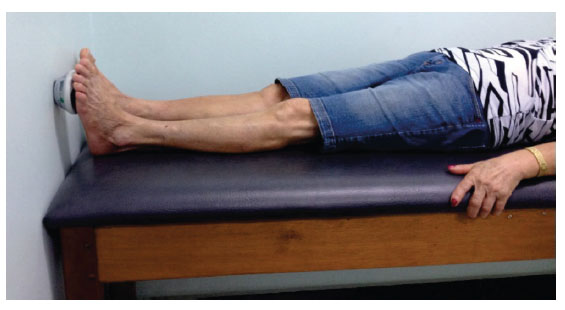Abstract
Introduction:
Falls are among the most common and serious problems facing elderly women. Falling is associated with increased mortality, morbidity, reduced functioning, loss of independence and hospitalization.
Objective:
The aim of this study was to investigate the association among fear of falling, muscle strength, and functional abilities in community-dwelling elderly women.
Methods:
Forty-nine elderly women (70.57 ± 5.59 years) participated in this study. Records of falls, self-efficacy associated with falls (FES-I Brazil), functional abilities (the Timed Up and Down Stairs test [TUDS] and the Timed Up and Go test [TUG]), lower limb muscle strength (knee extensors and ankle plantar flexors), and hand grip strength were investigated as variables of interest. Descriptive statistics, the one-way ANOVA, and linear regression tests were used to analyze the association between fear of falling and falls with other variables (α = 0.05).
Results:
Elderly women who presented records of falls within the last year had lesser strength of knee extensors and plantar flexors (p ≤. 05). Those who had low self-efficacy associated with falls presented lower strength of knee extensors (p ≤. 01). Variables associated with functional abilities (r = 0.70) and lower limb strength (r = 0.53) showed a positive correlation (p ≤. 01).
Conclusion:
The concern with the fear of falling and falls may be negative effects caused by lower limb muscle weakness.
Keywords:
Fall; Aged; Muscle Strength; Physiotherapy


